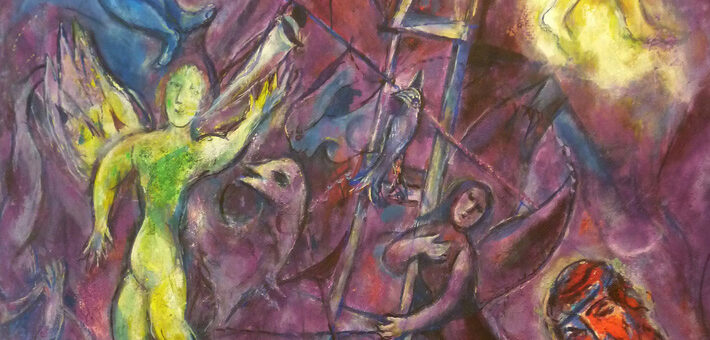Commentary on Isaiah 44:6-8
Isaiah 44:6-8 occurs in a section of Second Isaiah (chapters 41-44) in which the prophet’s central aim is to remind the people in exile of their identity as God’s own people.
The prophet in these chapters poetically recalls the deep history the people share with God in 41:8; 43:1, 7, 15, 20-21; 44:2, 21, 24, declaring them in these verses to be “chosen,” “formed,” “created,” “redeemed,” “called,” and “named” by God. The prophet even alludes to the negative experiences of the past and references their past sins in 43:25-28, declaring them forgiven in 44:22 (see also the description of Israel as a blind and deaf servant, unresponsive to God, in 42:18-25; 43:8).
By putting the story of their long relationship with God in front of them, the prophet inspires hope for the future. Their God has been with them and has demonstrated power through judgment and mercy for centuries. Can they say that about any other God? “Who has announced from of old the things to come?” God demands in verse 7. With the echoes of God’s devotion to them ringing in the exiles’ ears, they must respond that only their god has demonstrated the power to make the word the deed.
It is clear that on the other side of the affirmation of the power of God is a concomitant rejection of any claims to power by other gods: “I am the first and I am the last; besides me there is no god” (44:6b). If we take a closer look at Isaiah 41-44, we see the gods of the nations put on trial and challenged to prove not only their authority but their very existence.
The prophet has God act as prosecutor of these gods, challenging them in 41:21-24, to bring out their witnesses and their proofs: “Tell us what is to come hereafter, that we may know that you are gods; do good or do harm, that we may be afraid and terrified.” Without waiting for a response, God continues, “You, indeed, are nothing and your work is nothing at all…” (verse 24a). In the section that follows 44:6-8, the gods of the nations are verbally reduced to the timber from which their images are constructed (verses 9-20). They are only wood — inert and unable to save themselves and their followers.
The final verse of this reading, verse 8, begins with the command not to fear, the command most frequently spoken by the divine to human beings: “Do not fear, or be afraid; have I not told you from of old and declared it? You are my witnesses!” The prophet’s two-pronged approach in 44:6-8 — the recollection of the history of Israel and God and the rejection and dismissal of the gods of the nations, is designed to reassure and bolster the confidence of the people. It’s designed so that the people might move into the future with God, full of trust, not crippled by fear.
This text provides a powerful witness to a contemporary congregation living in a time marked by anxiety. These ancient words remind us that we do not go into the future alone or without resources. We are part of a community created and named by God, redeemed and blessed by God, chosen by God to be a “light to the nations” (42:6).
We are not alone. Scripture bears witness to the power and faithfulness of God. We bear witness to that power and faithfulness in our lives as well by moving past fear and practicing trust. God is, indeed, the first and the last. Proclaim with Second Isaiah that this God who was at the first can be trusted to the last


July 23, 2017